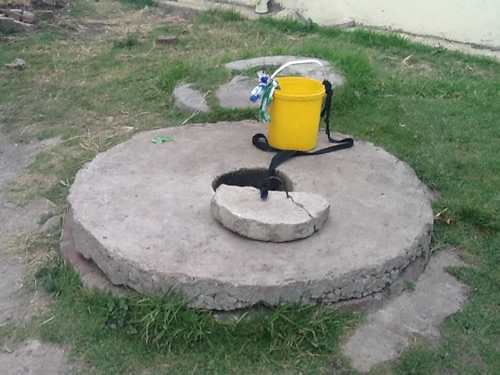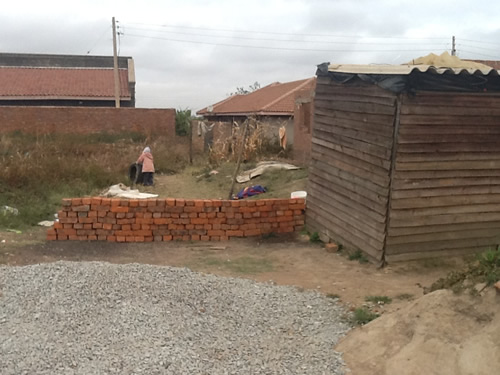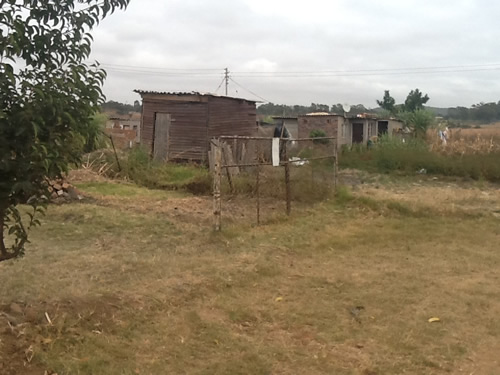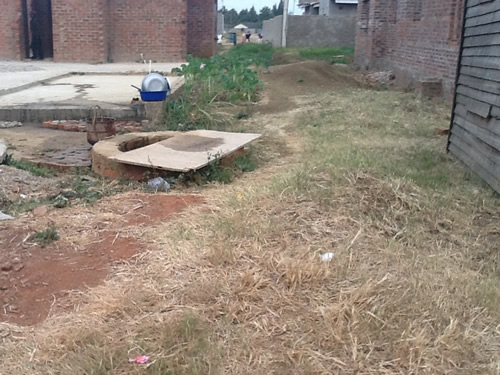How do we escape?
Friday, June 28th, 2013 by Bev Clark
Kubatana.net ~ an online community of Zimbabwean activists
Back in the 1980s and 1990s the Zimbabwean government loved slogans so much it came to define the nature of the politics of deceit favoured by the rulers. “Health for All by Year 2000,” “Housing for All by Year 2000,” “Clean Water for All by Year 2000,” “Education for ALL by Year 2000″ all clogged the public sphere. This was before the UN’s global commitments of the MDGs which were only adopted in 2000. Indeed Zimbabwe must have been way ahead by then! But it turns out it was all in the name of winning votes because many years later, things remain the same if not worse.
The following photo-essay documents Westlea, a “new” suburb that is yet another pointer of how far the country has lagged behind in providing “housing for all.”

Find water where you can

A child plays outside his ‘house’

A ‘gated’ residence

Safe water?
Reading Marko’s blog on Gukurahundi reminded me of a quote I saw yesterday:
If there is a God, He will have to beg my forgiveness.
- A phrase that was carved on the walls of a concentration camp cell during WWII by a Jewish prisoner
It is interesting that politicians will say anything they imagine will win them the people’s vote.
Retired Colonel Tshinga Dube is quoted in The Herald telling a rally that “the Gukurahundi should not be used to block the revolutionary party’s (Zanu PF) efforts to bring development to the people of Matebeleland.”
That would be laughable if it wasn’t reference to an event some have labeled genocide.
“I know most of you are still grieved by the past events. This is painful but we must discuss it. If you elect us we will talk to the Government and solve this issue,” Tshinga Dube pleaded.
I wondered if Moses Mzila-Ndlovu was listening.
Indeed politicians take people for granted and the very fact that Dube actually said once elected into parliament he would engage government on this matter smacks of the condescending attitude that has become the hallmark of politicians claiming to have answers for problems unique to Matebeleland.
To his credit however, Dube did acknowledge that “people are not happy and of course we cannot just say it is over.” But then that’s exactly what the minister of defence has always insisted: Gukurahundi is over, deal with it!
Usually a revolution comes with a change of government or system and some revolutions have even produced another wave of repression. From Tahrir Square in Cairo to Gezi Park in Taksim now Viva la Revolución in Brazil. 84% of the people taking part in the in the protests or civil obedience in Sao Paulo, Brazil are not aligned to any political party. They are educated and most of them are first time protesters. 53 percent are under are under 25 years of age and 22 percent are students. I guess they are also tech savvy. These statistics are quite similar in almost every country where uprisings have been witnessed. The images coming out show young people in running battles with police. Maybe the young people are the hardest hit by the soci-economic and political injustice world over.
Some say the protests were started over an increase in transport fares but this is just part of why they are protesting. Some of the grievances include police brutality, inequality, corruption, dire public services and the extravagant preparations for next year’s World Cup. The cost of hosting the World Cup is now taking its toll on ordinary citizens just like happened in South Africa 2010. If a small increase in fares could make people go out on the street in thousands what about a country with over 80 percent of the population unemployed and where water and electricity have become luxuries?